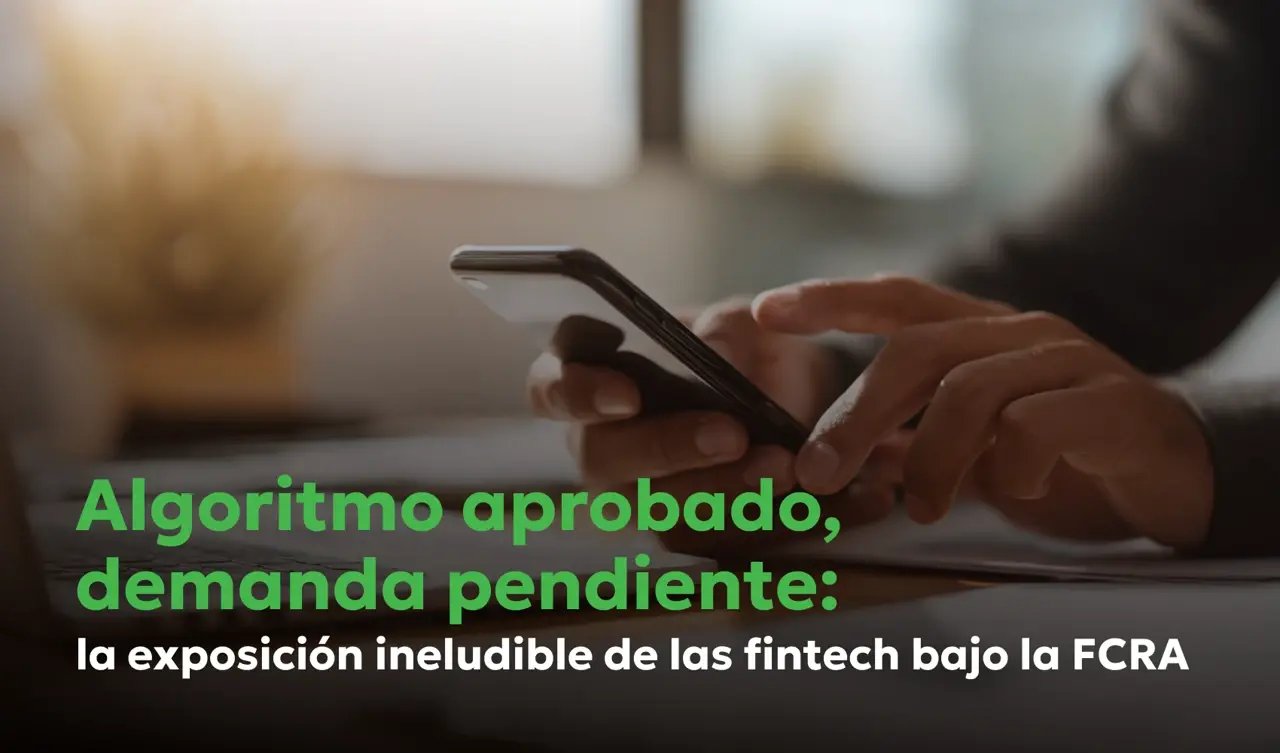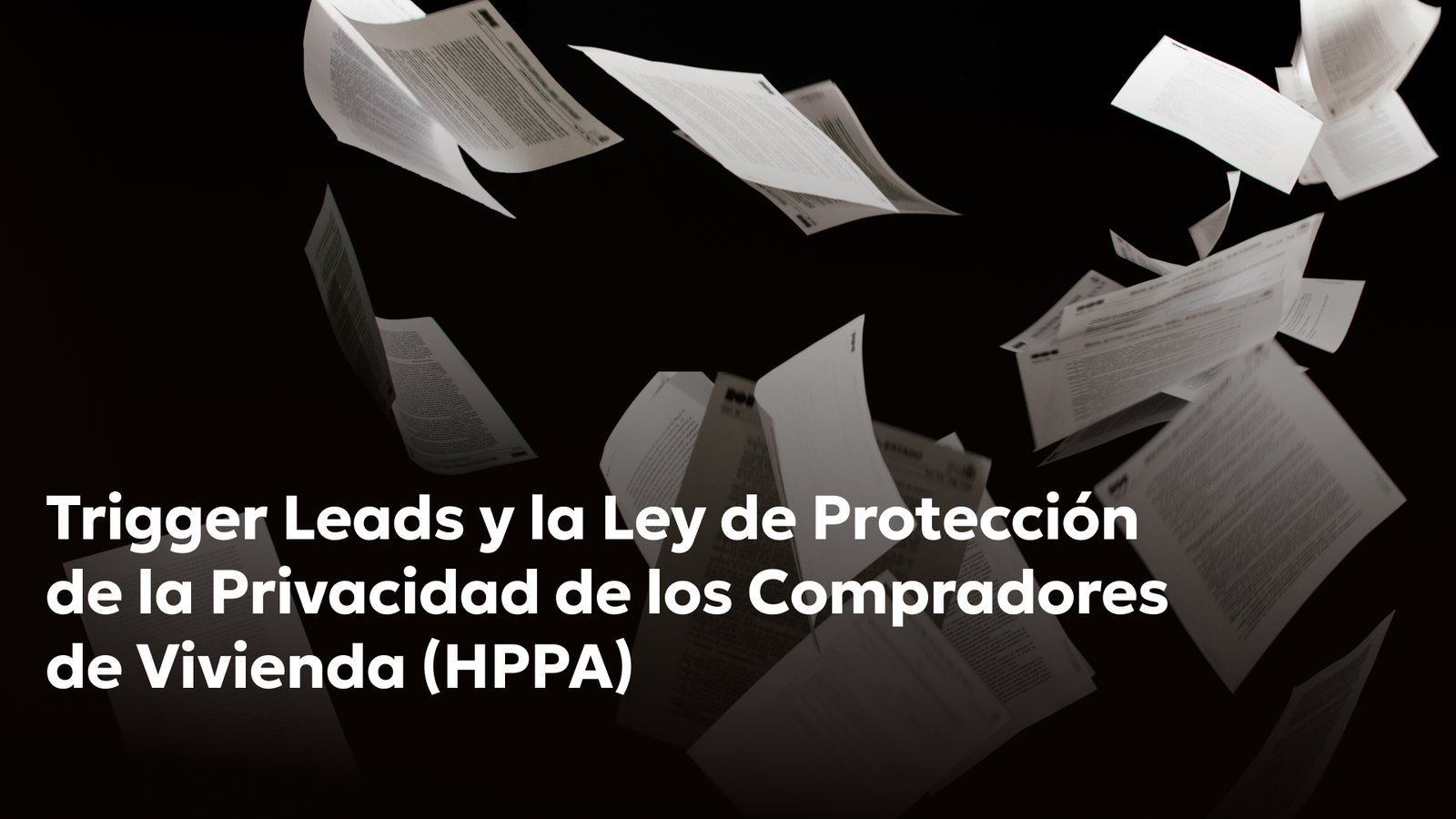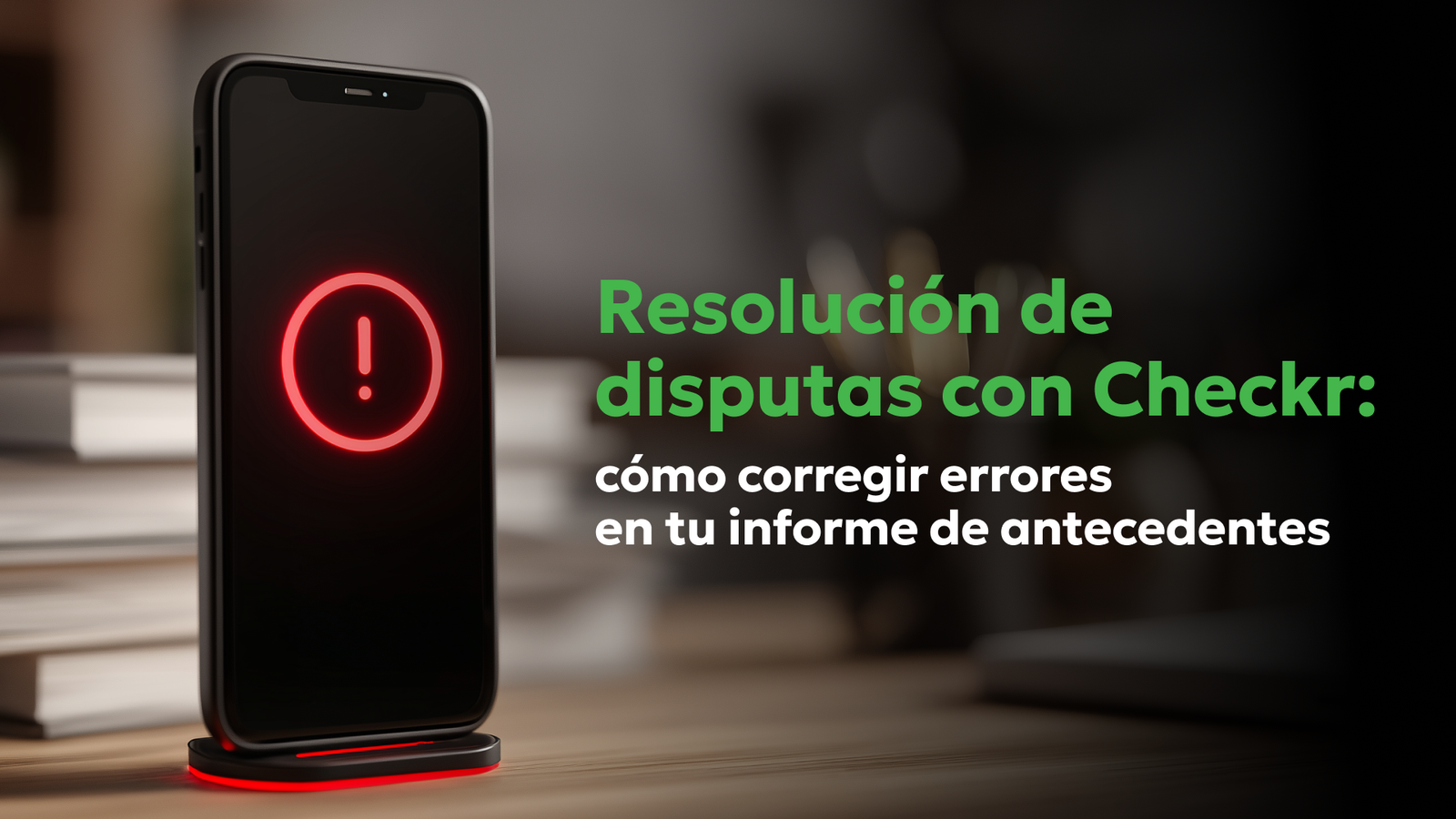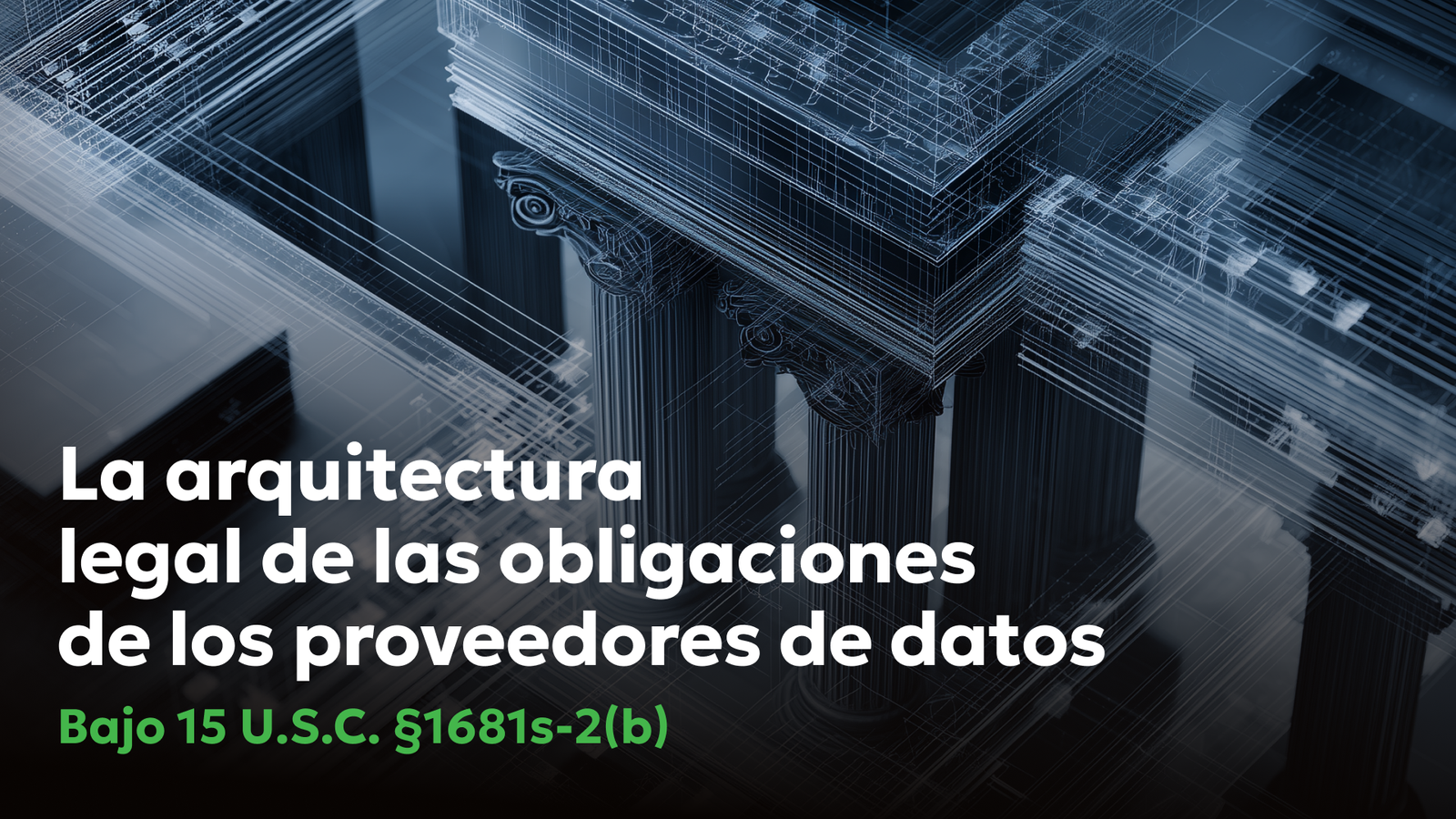¿Cuáles son los errores más comunes en la verificación de antecedentes?
- Blog
- Todo sobre la FCRA
¿Cuáles son los errores más comunes en la verificación de antecedentes?

Los errores ignorados en la verificación de antecedentes pueden ser la causa de confusión y pérdida de oportunidades.
Las verificaciones de antecedentes pueden conllevar problemas graves. Aprenda qué tipos hay, qué los causa y cómo puede solucionarlos.
¿Qué es una verificación de antecedentes?
Una verificación de antecedentes es un proceso que utiliza una persona, empresa o cualquier otra entidad relevante para determinar si una persona es realmente quien dice ser. Permite verificar las actividades pasadas de otra persona para averiguar su identidad y fiabilidad.
Hay diferentes tipos de verificaciones de antecedentes, incluidos los mandatos laborales, penales, crediticios, educativos, de seguridad nacional, de vehículos motorizados y de industrias especiales.
Protegiendo sus perspectivas laborales: Afrontando los errores en la verificación de antecedentes de Hireright
Los errores en las verificaciones de antecedentes realizadas por Hireright pueden poner en riesgo sus perspectivas de empleo y tener graves consecuencias. Si usted se ha visto afectado por información inexacta o incompleta en su informe de verificación de antecedentes de Hireright, es muy importante que tome medidas para defender sus derechos. Nuestro bufete de abogados se especializa en derecho laboral y puede proporcionar asistencia experta para resolver cualquier problema relacionado con errores en la verificación de antecedentes de Hireright. Contáctenos hoy para una consulta y permítanos ayudarle a proteger sus perspectivas de empleo.
¿Qué es un error en la verificación de antecedentes?
En pocas palabras, un error en la verificación de antecedentes es un error cometido durante el procedimiento de la verificación de antecedentes. Básicamente, estos errores implican agregar hechos que no son verdaderos para el registro de una persona o excluir hechos que deberían estar en el registro de dicha persona.
En la mayoría de los casos, estas inexactitudes siempre acaban dando una mala imagen del sujeto de la verificación de antecedentes.
Algunos de los errores más comunes en la verificación de antecedentes son:
- Transposición de dígitos del Número de Seguro Social
- Datos erróneos o incompletos en los documentos originales
- Antecedentes penales incorrectos
- Información desactualizada que debería ser eliminada
- Identidad errónea, que lleva a los antecedentes penales de otra persona en su verificación de antecedentes
- Delitos cometidos por otra persona que usa su identidad que aparecen en su verificación de antecedentes
- Mezcla de datos, lo que lleva a que los detalles de otra persona aparezcan en su verificación de antecedentes
Factores responsables de los errores en la verificación de antecedentes
Ahora que conoce los errores más comunes que se cometen durante el proceso de verificación de antecedentes, analicemos las causas de estos errores.
La mayoría de los errores de verificación de antecedentes se deben a los siguientes factores:
Errores humanos
Los ordenadores y otras máquinas de procesamiento de la información no tienen más remedio que producir la información que las personas cargan en ellos. Si los datos son erróneos desde el principio, serán erróneos al final. Basura entra basura sale. ¿No es eso lo que dicen?
Robo de identidad
Este delito ocurre cuando la información de identificación personal de una persona es utilizada por otra para cometer un delito. Tal delito se atribuye al propietario inocente y desprevenido de la información personal.
Errores de programas en los ordenadores
A menudo, las empresas que recompilan bases de datos utilizando información pública normalmente utilizan fórmulas automatizadas. El desafío de esta estrategia es que el algoritmo confunde ocasionalmente la información proporcionada.
Falta de actualizaciones
De vez en cuando, las agencias gubernamentales eliminan las condenas penales al cumplirse un periodo de prueba por buen comportamiento. Sin embargo, muchas de sus bases de datos comerciales no realizan las actualizaciones cruciales para eliminar los delitos que se han eliminado de los registros públicos.
El peligro de los errores en la verificación de antecedentes
Los errores en la verificación de antecedentes suelen tener consecuencias desagradables. Esto se debe a que los errores suelen manchar su imagen y hacer que parezca desagradable o indigno de lo que provocó la verificación de antecedentes en primer lugar.
En pocas palabras, los errores en la verificación de antecedentes pueden resultar en la pérdida de una oportunidad de trabajo, una reputación dañada, la denegación de vivienda y la denegación de varios productos crediticios.
Qué hacer en caso de errores en la verificación de antecedentes
Afortunadamente, los errores en la verificación de antecedentes no es el fin del mundo. La Ley de Informe de Crédito Justo ha puesto a la disposición de los consumidores una serie de requisitos en caso de que aparezcan errores en la verificación de antecedentes.
En primer lugar, los empleadores o posibles empleadores deben tener su consentimiento por escrito para realizar una verificación de antecedentes.
La ley también estipula que las personas deben ser notificadas si se utiliza una verificación de antecedentes contra la persona. Además, dicha persona tiene derecho a una copia de la verificación de antecedentes.
Si hay algún error en la verificación de antecedentes, tiene derecho a disputarlo. Los errores en su verificación de antecedentes deben rectificarse o eliminarse dentro de los 30 días posteriores al inicio de la disputa.
Cuando las empresas de verificación de antecedentes y las agencias de informes del consumidor violan las disposiciones de la ley, tiene derecho a demandarlos.
Como mencionamos anteriormente, los errores en la verificación de antecedentes tienen consecuencias de gran alcance. Pueden hacer que se pierdan oportunidades importantes, como una casa o un trabajo. Si ha sido víctima de errores en la verificación de antecedentes que han provocado resultados desagradables, tiene derecho a una compensación por daños y perjuicios.
¿Está confundido sobre cómo rectificar este error? Estamos aquí para ayudarle. Contáctenos para los siguientes pasos.


Daniel Cohen es el fundador de Consumer Attorneys. Daniel gestiona los esfuerzos de branding, marketing, captación de clientes y desarrollo de negocio de la firma. Desde 2017 es miembro de la Asociación Nacional de Defensores del Consumidor y del Centro Nacional de Derecho del Consumidor. Es reconocido nacionalmente en la protección de los consumid... Leer más
Artículos relacionados




R
ES™Usted no asume ningún gasto. La ley exige que ellos paguen.






